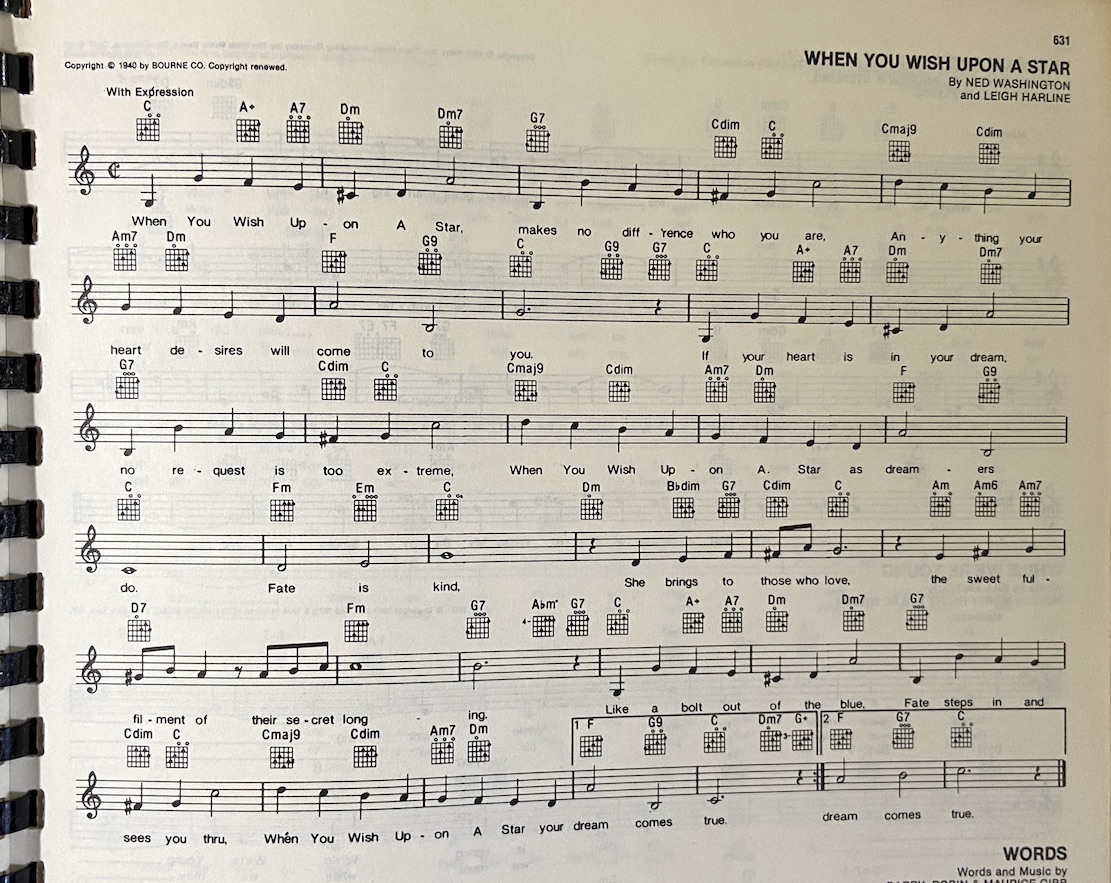- The film Pinocchio was based on The Adventures of Pinocchio, written by Carlo Collodi and published as a children’s novel in 1883. In the book, the character was simply known as the Talking Cricket, who had been living in Geppetto’s house for more than 100 years. Early in the book, the cricket tells Pinocchio, “You are a puppet, and what’s worse is that you have a head of wood.” Pinocchio’s response was rather harsh; he hurled a mallet at the cricket, killing it. The Talking Cricket’s tale does have a happy ending of a sort, when his ghost is given a house by the Fairy with the Turquoise Hair (as the Blue Fairy was known in the book.)
- When Disney was developing Pinocchio for the big screen, one of the problems they faced was the characterization of Pinocchio himself. Early drafts of the script portrayed the puppet as being cruel at times, much as he was in the book. As Walt Disney himself said, “One difficulty…is that people know the story, but they don’t like the character.” Walt eventually solved the problem by taking the minor cricket character, naming him Jiminy, and using him to develop the heart of the story, namely the friendship between him and Pinocchio.
- This was a rather late development in the story treatment, even by Disney standards. The character of Jiminy Cricket wasn’t introduced until nine months into production.
- Jiminy was the first sidekick to have a starring role in another Disney animated feature film (without his main protagonist) when he appeared in 1947’s Fun and Fancy Free.
- Jiminy was animated by one of Walt Disney’s Nine Old Men, Ward Kimball. In early concept sketches, Jiminy was drawn in a realistic style. Kimball thought that the look was “disgusting,” so he took a different approach and made him much more cartoonish (so much so that the only reason we know he’s a cricket is because of his name!).
- Speaking of his name, Jiminy wasn’t invented by Disney. At the time, “Jiminy Cricket” was a polite euphemism for Jesus Christ. The expression was actually used (as an exclamation) in Snow White and the Seven Dwarfs, The Wizard of Oz, and the 1938 Mickey Mouse short, The Brave Little Tailor.
- Animators used 27 different colors to bring Jiminy Cricket to life.
- The voice of Jiminy Cricket was provided by Cliff Edwards. Edwards also played the part of the head crow in Dumbo (1941) and sang “When I See An Elephant Fly.”
- Jiminy Cricket has become one of the most enduring symbols of The Walt Disney Company. His signature song, “When You Wish Upon a Star,” accompanies the Walt Disney Pictures logo at the start of every Disney animated film, and the ships of the Disney Cruise Line play the first seven notes of the familiar melody as their horn signals.
- If you meet Jiminy in the parks and get his autograph, you’ll often find that the initial “J” is drawn as an umbrella, Jiminy’s signature prop!

WHEN YOU WISH UPON A STAR
1940
WHEN YOU WISH UPON A STAR,
MAKES NO DIFFERENCE WHO YOU ARE.
ANYTHING YOUR HEART DESIRES
WILL COME TO YOU.
IF YOUR HEART IS IN YOUR DREAM,
NO REQUEST IS TOO EXTREME.
WHEN YOU WISH UPON A STAR
AS DREAMERS DO.
FATE IS KIND.
IT BRINGS TO THOSE WHO LOVE,
THE SWEET FULFILLMENT OF
THEIR SECRET LONGING.
LIKE A BOLT OUT OF THE BLUE,
FATE STEPS IN AND SEES YOU THROUGH.
WHEN YOU WISH UPON A STAR
YOUR DREAM COMES TRUE.

